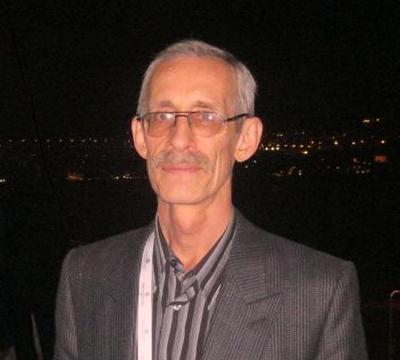The spread of Christianity was very different. For Arabs in the 7th century, Christianity was the religion of the Roman and Byzantine empires, dominated by monasticism and gaudy rituals, saint worship, onerous tithes to feed fat, opulent bishops. It held little attraction to the Arabs, though Christians were generally seen as nice guys, not so conspiratorial and insular as the Jews, who did their best to scuttle the fledgling Muslim community. For Christians the world is corrupt but you can escape it. So if you are pious, you can overlook the corruption of the church/ society and retreat to a monastery.
For Muslims, the world is corrupt and you can change it. Fast forward to Marx: The philosophers have only interpreted the world in various ways; the point, however, is to change it.
The western view of history jumps from Rome to the 15th century, as if the world was suffering 'dark ages' as Christianity spread through Europe. But for Muslims, the 6th--14th centuries were the height of world civilization, the flowering of the House of Peace, when Islam created a world society where war ceased among believers, though it continued in the 'House of War'.
Though Islamic civilization was crippled in the 13th and 14th centuries by the House of War (Mongols and Timurides), the vision was resilient. When the Mongols and Timur had burned themselves out, Islam revived, as people renewed their 'quest to build and universalize the community of Allah -- only once again to be facing the European and then American House of War under capitalism and imperialism.
Shouldn't the UN be the House of Peace? In theory, yes. But it contains all who care to sign on, including warmongers. After WWII, it was founded to promote peace. But then so was the League of Nations after WWI. Even the brutal wars of capitalism/ imperialism were not enough to put paid to the House of War types.
Islamic reformation?
What about the western dismissal of Islam as calcified, stuck in the middle ages, full of harsh punishment, requiring an 'Islamic reformation', separating politics and religion?
On the contrary, the Catholic church was the one that needed the reformation. And that reform impulse started long before Luther nailed his demands to the Wittenberg church door in 1517. Wycliffe (d. 1384) argued for Scriptures as the authoritative centre of Christianity. He dismissed the claims of the papacy-as-divine as unhistorical, exposed monasticism as corrupt, and priests as morally unworthy.
Islam has no pope, no church, no priesthood, the ulama (scholars) really more like lawyers. Islam is based on direct personal interaction with god, as Luther wanted. When it finally came, the Reformation shattered the unity of the church, from which it never recovered, both Catholicism and Protestantism weakened to the point of insignificance, the church (read: morality) off limits to political life. No Christian House of Peace.
What happened to the Judeo-Christian world in the subsequent five centuries? Well, it's no longer remotely Judaic or Christian, but more atheistic/ agnostic. All western countries pride themselves on the 'separation of church and state', and shrilly cry for an 'Islamic reformation', the subtext being to gut Islam of its activist essence, its call for social justice.
It is Judeo-Christian faiths that need an overhaul to make them relevant in today's world of political and environmental apocalypse. But, as with the communist attempt at creating a secular House of Peace, the flesh may be willing, but the spirit is lacking. The Soviet Union was a kind of secular, socialist House of Peace, but failed. Peace is boring. Only if you really believe, i.e., have faith, i.e., spirituality, can you build such a house.
No getting around it -- Islam is political as well as devotional. Ansari's argument is all the more powerful as he is secular, though born a Sunni Muslim in Afghanistan, and clearly admiring of his heritage.
Briefcase missionaries
Ansari smiles ironically at the wiles of the imperialists as they invade(d) the Muslim world.
*When Europeans came to the Islamic world, they brought along goods that were the end products of the industrial revolution. The soldiers with guns protected western merchants and bankers, bringing flashy goods, gold and alcohol, exactly the same as in the Americas and Africa.
*The new overlords came wrapped in certainty about their way of life and peddling their own ideas of ultimate truth. They didn't challenge Islam so much as ignore it, unless they were missionaries, in which case they simply tried to convert the Muslims. Let the wild beasts keep their own beliefs. If they noticed Islam, they didn't bother to debate it (missionaries are not in the debating business) but only smiled at it as one would at the toys of a child or the quaint relics of a more primitive people.
(Note: You can view every article as one long page if you sign up as an Advocate Member, or higher).





